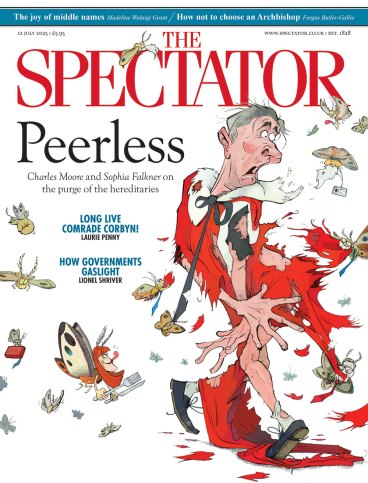
Although Gordon M. Williams died as recently as 2017, his heyday was the Wilson/Heath era of the late 1960s and 1970s. During that time he managed to appear on the inaugural Booker shortlist, dash off a ten-day potboiler, The Siege of Trenchard’s Farm, that would be filmed by Sam Peckinpah, and continue to file a series of ghost-written newspaper columns for the England football captain Bobby Moore.
As these accomplishments might suggest, Williams was the kind of writer whom the modern publishing world no longer seems to rate. Essentially, he was a literary jack-of-all-trades, alternating straightforward hackwork with more elevated material as the mood took him, and eventually abandoning fiction for a desultory career as a screenwriter. Such scattergun reputations are difficult to revive, and Picador is to be congratulated for returning Williams’s one undoubted masterpiece to print.
The jacket of my ancient paperback of From Scenes Like These carries a quote from the 1968 Guardian review claiming that it lays bare ‘the wellsprings of violence’. Certainly these dispatches from the front line of mid-1950s Ayrshire are awash with retributive punch-ups and saloon-bar mayhem. But their real subject is corruption, or, to put it less dramatically, the urge to conform. Duncan ‘Dunky’ Logan, Williams’s teenage hero, enters the pages as a decent-seeming apprentice farmworker with a nice girl to take to the cinema on Saturday nights and a hutchful of rabbits to inspect on Sunday. He ends as one of the lads, tanked up and fancy-free, on his way to the New Year’s Day Rangers-Celtic game at Hampden Park.
Innocuous and easily led, Dunky is (as Williams constantly reminds us) unable to resist the appeals of his Macmillan-era male role models to ‘be a man’ – that is, to get drunk, make a nuisance and treat women like dirt. Context is provided by the farm, whose elderly owner is in decline, while a newly arrived and pregnant housekeeper schemes to marry his son. In the tenement house – from which Dunky longs to escape – also live his vicious, disabled father, his genteelly aspiring mother and his younger sister.
These dispatches from 1950s Ayrshire are awash with retributive punch-ups and saloon-bar mayhem
With its distinctive supporting cast – including the ladies’ man Telfer, who has an eye on the housekeeper, and Dunky’s old schoolmaster, who despairs of his former pupil’s cheerful embrace of convention – From Scenes Like These, reissued with a shrewd introduction by James Robertson, operates on several levels. Unsurprisingly, given Williams’s later collaborations with the England manager Terry Venables, some of its best scenes follow Dunky’s exploits on the football field. These combine third-party reportage with Dunky’s own view of himself, enabling the reader to watch the game while simultaneously occupying the space inside Dunky’s head as he plays it.
Dreams of becoming a professional footballer end with an on-field dust-up in which Dunky’s front teeth get knocked out. All that awaits him, we infer, is a lifetime of stasis, pints of ‘heavy’ and following wherever the crowd may lead. Williams balances his hero’s inertia with the satisfactions of fitting in. We are back with the ‘Ordinary Boys’ of Morrissey’s song, trapped in ‘the lair of their ordinary world’, where they nevertheless ‘feel so lucky’.








Comments